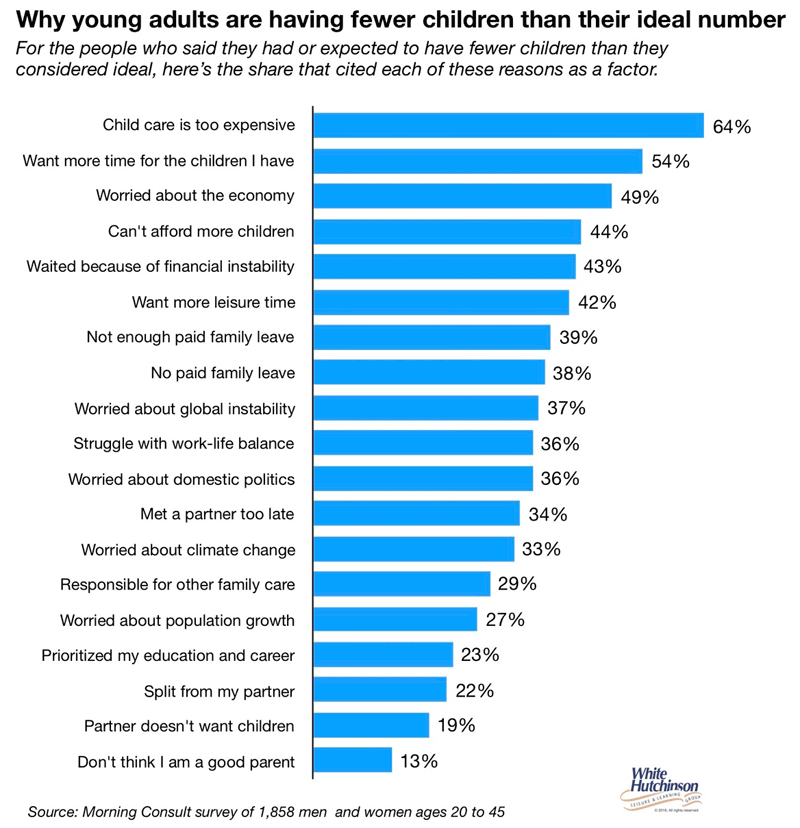
Vol. XVIII, No. 6, July 2018
Why Americans are having fewer babies
In the article in our last issue, Where have all the babies gone?, we reported on the continuing baby bust with 2017 having the lowest number of babies born since 1987. At first researchers thought the Great Recession was the cause. But the continuing decline despite an economic recovery indicates that is not the reason.
Now along comes a survey that gives us some insight of why this is happening. Conducted by Morning Consult for The New York Times, the survey asked a nationally representative sample of 1,845 adults aged between 20 and 45 why they were having fewer babies.
More than half of the survey respondents said they planned to have fewer children than their parents. About half were already parents. Of those that weren't, 42% said they wanted to have children, 24% said they did not and 34% said they were unsure.

For the people who said they'd decided to have less children than their ideal number, the reason is clear - children are expensive. Cost was the predominate reason with four of the five top factors preventing parents from having more kids related to money.
Nearly two-thirds (64%) said that childcare was too expensive. The number two reason for over half (54%) of parents was they wanted to have more time with the children they already had. In third place, half (49%) cited worries about the economy. Not being able to afford more children (44%) and waiting for more financial security (43%) were the fourth and fifth biggest factors.
Although the survey's findings paint a picture of economic insecurity, they also tell a story that is partly about greater gender equality, with women now considering that motherhood has become more of a choice.
For people who either weren't sure about having children or didn't want them at all, having leisure time (36%) was the biggest reason, followed by not having met the right partner (34%). Not being able to afford childcare came next (31%), then not having a desire to have children (30%).
What the survey results clearly indicate is that the declining birthrate is likely to continue well into the future.
Additional reading:
- The extinction of the middle child. They're becoming an American rarity, just when America could use them the most.
- Where have all the babies gone?
- Demographic shifts disrupting traditional FEC models
Additional information:
If you're interested in learning more about the declining birthrate, there's a good 20-minute podcast where Dr. Caroline Sten Hartnett, sociologist and demographer on the faculty at the University of South Carolina, discusses the latest findings and offers her predictions for the future (click here)


